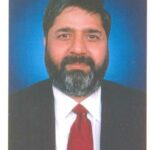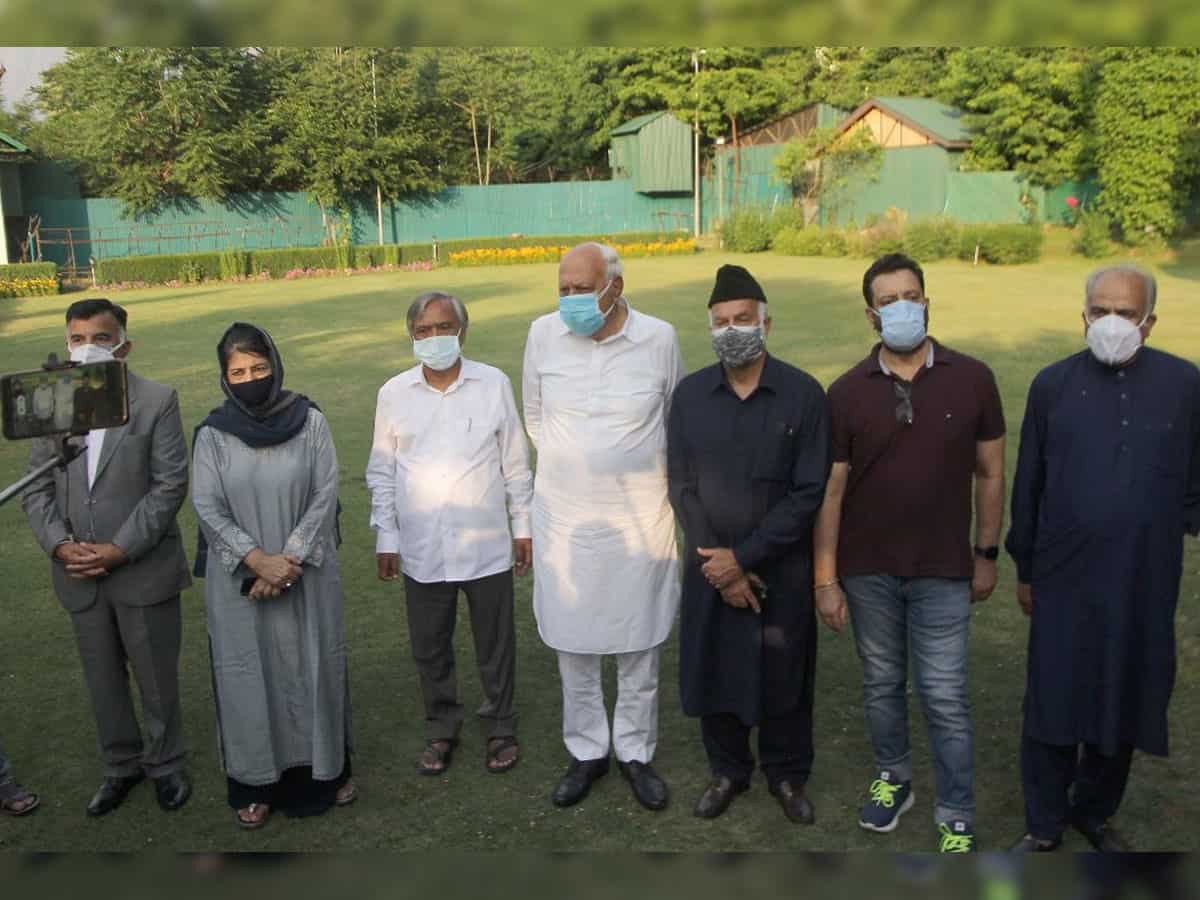
People’s Alliance for Gupkar Declaration is intact, so said National Conference president and former chief minister Omar Abdullah at a party rally in north Kashmir town of Baramulla on Saturday , which could mean the renewal of the desire to keep the Kashmir-centric parties united on the idea of the restoration of Article 370 , snapped in August 2019 . This must have been done as the people are developing doubts about the capability of the political groups to get back the special status ,owing to two factors – one, the BJP has a massive majority in the Parliament and will not reverse its own act, which it believes has undone the injustice meted out to the marginalized sections in J&K and removed all the barriers between the erstwhile state, now divided into two union territories and the rest of the country. Secondly, it is because of the flip-flop on the issue as there is no clear roadmap with the Kashmiri parties to achieve what they claim to be working for . Politically, they cannot garner the strength to sway the mood in their favour , especially when the nation is having a polarized polity.
It was the first affirmative statement by Omar in past few months about the alliance that is better known by its abbreviation , PAGD. The alliance is considered synonymous with the political objective of the parties in Kashmir to get the erstwhile special status back , as also the state of Jammu and Kashmir as it existed until August 4, 2019. That means, Ladakh, which now sits as a separate Union Territory on the map of the country after the erstwhile state of Jammu and Kashmir was split into two union territories of Ladakh, and J&K on August 5, 2019, but they assumed their current shape and status on October 31, 2019 .
Behind this verbal rejuvenation of the idea of the PAGD in this point in time, when many others have written its obituary , is with an eye on the Assembly elections in J&K There is a widespread speculation that the polls would be held after the Delimitation Commission report is submitted , hopefully by March next year . But there are many ifs and buts , which indicate that the elections may not be held immediately after the Delimitation Commission’s report,, as the Centre is currently busy with the Uttar Pradesh elections, which holds key to its political future. BJP is in overdrive to retain Uttar Pradesh with a big majority, for a victory in the most populous state, with 80 seats in the Parliament, will enable the BJP to send a nation-wide message of its invincibility .
There is a near unanimity that the schedule of the J&K elections would depend on the outcome of the U P polls, even if BJP wins over there, its success would be measured in terms of the majority of seats the saffron party will gain in the politically crucial state.
It will also determine , how much the idea of scrapping of the Article 370 can generate its appeal in the U P polls. A majority of the soldiers and paramilitary forces personnel , deployed in Kashmir are from Uttar Pradesh . The abrogation of Article 370 , gels more with the people of U P , as it does in the rest of the Hindu belt in the country. . In a way , there would be a referendum on this Article in the U P elections, and later on it will extend to Jammu and Kashmir as well.
These are real-time facts which cannot be denied through fiction , but the PAGD also has been reduced to symbol of climbdown; escaping from its original commitment of not taking part in any political activity unless the Article 370 and the full statehood were restored. Violating its promise , it took part in the District Development Council polls , held in October-November last year , and is busy in the campaign to take part in the Assembly elections in the UT status J&K. It all sums up that the PAGD is losing its moorings , which , in any case, were in doubt because the Alliance was a show of optics , joined by an idea , but in practical terms , the real-politic made it aware, what was possible for it to do, and achieve.
At the moment, its focus is on Assembly polls, and the number of seats each of its constituents manages to win eventually.
It is being conveyed to the Kashmiri Muslims that the political parties in PAGD are committed to get what they had promised , but it has no roadmap to convince them. It is just an election time issue , which thrives on the compulsion of Kashmiri voters, as they have no option but to support those who talk about it . Moreover, they are desperate to have elected representatives , to whom they can talk and converse in their language . That is what they are missing the most. The parties might have picked up this sentiment, hence the revival of the idea of PAGD.
Arun Joshi is a Senior Journalist, Political Analyst based in Jammu and Kashmir. He has authored four books, including, “Eyewitness Kashmir: Teetering on Nuclear War”. He has worked with Hindustan Times, The Times of India, The Indian Express and The Tribune.
Views expressed are personal

